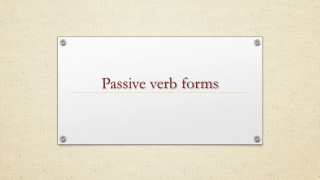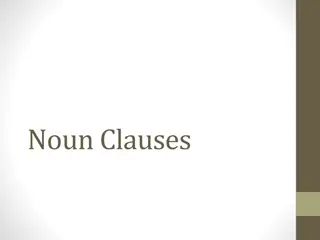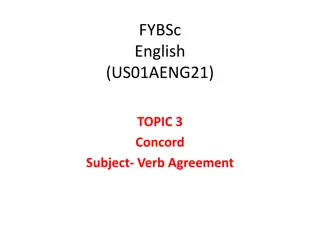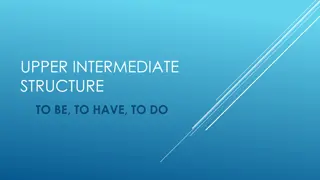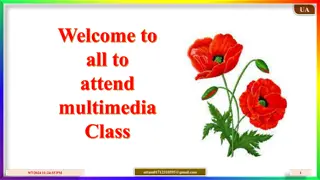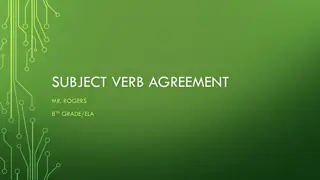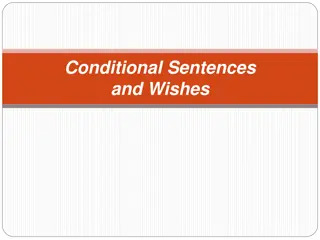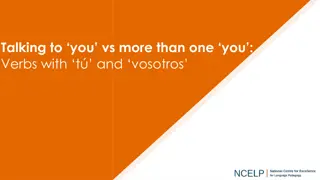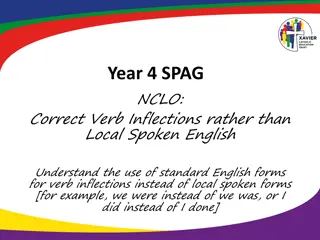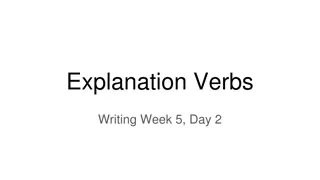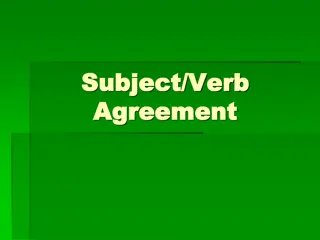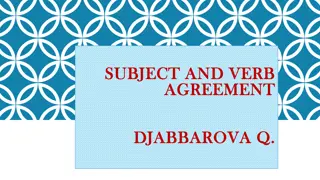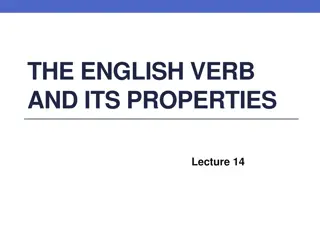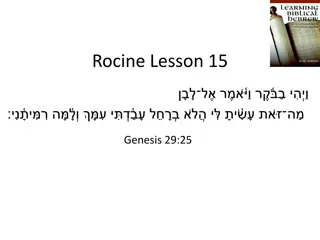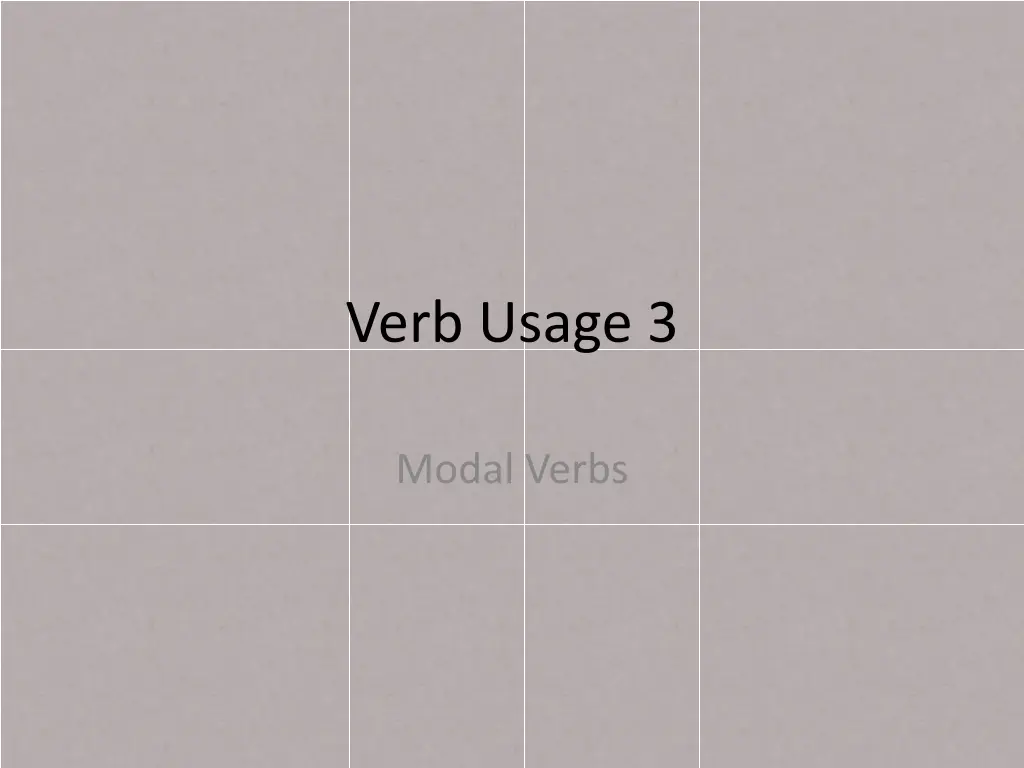
Understanding Modal Verbs in English
Modal verbs in English are auxiliary verbs used to express necessity, uncertainty, ability, or permission. This article explores how modal verbs differ from other verbs, their past tense complexities, and subtle differences in meaning. Learn about common modal verbs, their usage, and how they convey nuances in language.
Download Presentation

Please find below an Image/Link to download the presentation.
The content on the website is provided AS IS for your information and personal use only. It may not be sold, licensed, or shared on other websites without obtaining consent from the author. If you encounter any issues during the download, it is possible that the publisher has removed the file from their server.
You are allowed to download the files provided on this website for personal or commercial use, subject to the condition that they are used lawfully. All files are the property of their respective owners.
The content on the website is provided AS IS for your information and personal use only. It may not be sold, licensed, or shared on other websites without obtaining consent from the author.
E N D
Presentation Transcript
Verb Usage 3 Modal Verbs
Modal verbs are easy to use (if youre a native speaker of English) but not so easy to understand. They are AUXILIARY verbs used to express necessity, uncertainty, ability, or permission: You must do your homework now. (necessity) He may need some help. (uncertainty) They can read really well. (ability) You may leave now. (permission) There are 8 commonly used modal verbs: can could may might must ought should would Will & shall are also sometimes considered modals, but they are used exclusively to form the future & future perfect tenses. ** Shall is rarely used but was at one time used with the 1st person to form the future, while will was used with 2nd& 3rdpersons.
You already know, although perhaps unconsciously, that modal verbs are different from other verbs. For one thing, they don t get an -s on the end of 3rdperson singular verbs: he laughs he can laugh he must laugh he should laugh Another difference is that using modals in the past is somewhat complicated. Technically, could would should might is the past tense of is the past tense of is the past tense of is the past tense of can will shall may However, modal usage is much more complicated than that. It s correct to say both I may go. I might go. And neither one is in the past. In fact, if you really think about it, it sounds as if both are in the future. Because they have to do with MOOD (that s where the adjective modal comes from), tense is really tricky.
The same is of can & could: I can leave now. I could leave now. The two have different meanings, but the difference doesn t have anything to do with time. When you use the sentence with can, the implication is that you have the ability to leave now & are going to do so. With could, you still have the ability, but the implication is that you re not going to do so: I could leave now, but (I don t want to go with you; I have too much homework; I would rather wash my hair.) So do we ever need modals in the past? And if so, how do we put them in the past if the past of can, may, etc., happen at the same time as can, may, etc.? Think about it: if you say right now, I could leave if I wanted, what would you have said yesterday? I could have left if I had wanted. Technically, that s present perfect. Well, it s the present perfect of leave, not the present perfect of can or could. You can t put modals in the perfect tenses: I have can eat ????? I had might eat ????? The only way you can change the time (tense) of a modal verb is to change the tense of the main verb, as in I could have left. Even then, the present perfect is the only tense that will work: I could have left I could had left???? I could will have left???? I could will leave????
In short, modal verbs have a lot more to do with subtlety of meaning than they do with time. What s the difference between these two sentences: Can I have another glass of Coke? Could I have another glass of Coke? They mean the exact same thing. Ideally, you realize that the difference is that the second one is more polite than the first. Technically, it should be May I have another glass of Coke? May is about permission; can is about ability. That is, you CAN have another glass of Coke, but you MAY not, because your mother won t allow it. But informally, everyone uses can (as well as could ) to talk about permission, not just ability.
What about should? We use should to make a strong recommendation: You should leave now if you want to arrive on time. And just like with can / could, if you want to use should in the past, you have to use the present perfect of the main verb: You should have left yesterday.
Dont lose any sleep over modal verbs. You just need to be aware of them & of the fact that their usage involves meaning more than tense. As a native speaker of English, you automatically use modals correctly most of the time. But if you ever want to become an ESL (English as a Second Language) instructor, you ll have to study them a little more in depth, because they are somewhat difficult for non-native speakers of English. For you, there aren t even any practice exercises, & if you look for any on the internet, you ll find fill-in-the- blank exercises that will be no challenge for you at all.

